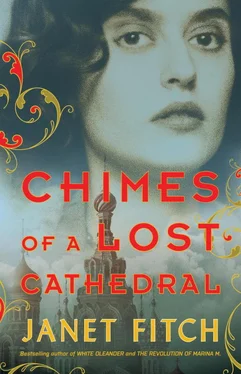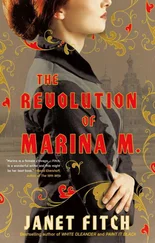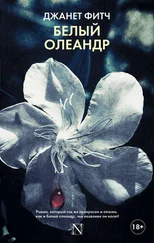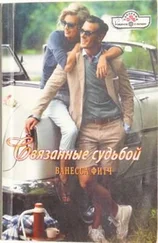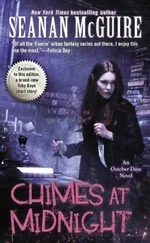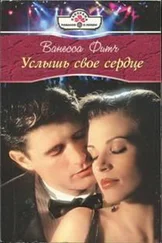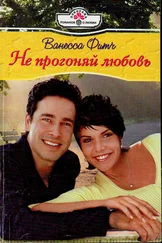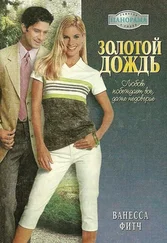In no hurry to return for pre-dinner duties, I strolled under the unfurling lindens, enjoying the symphony of birdsong, when I heard a gang of new recruits being marched to the barracks. I automatically stepped out of their path. “Marina!” someone called. I glanced up. Amid the usual pale, desperate faces of the draftees, among their patchily shaven heads and homemade caps, a tall recruit was waving at me. His dark eyebrows met in the middle—Bogdan! And there was hatchet-throated Ilya Ionian, and sandy-haired Gleb—marching together in a group of maybe twenty conscripts. I ran after them. “Bogdan!” I didn’t care who saw me. He tried to run back to me but was stopped by a soldier’s rifle.
“Look at you!” he grinned. “We thought you’d gone back to Petrograd!”
I could see the blood near his ear where the shaving had nicked him. “No one’s going to Petrograd. Only leaving. How did they get you?” I was trotting alongside as the soldiers pressed them onward.
“The village turned us in.”
Yes, Lyuda had warned me. They’re not all that safe there at Maryino. It’s only a matter of time.
“They burned the house to the ground.”
A numbness came over me, dull and thick like a stifling quilt. A roaring in my ears. Maryino . The big dacha… my childhood and my mother’s. My grandparents, my brothers. That lost world. I thought it would survive—that someone would always live there, even if I could no longer return.
“They roughed up the girls,” Bogdan said. Meaning raped. Meaning beaten. But left alive.
“The Mother is safe,” Ilya added in his deep singer’s voice. “They got away. The Master. Magda.”
The smoke, I could smell it. Burned it to the ground.
“Of course they would,” I said. “Where did they go?”
Bogdan shrugged. That familiar gesture. Oh, for something familiar, I didn’t realize how I would miss it! “I don’t know. We woke up and they were gone.”
“They’d been planning it all along,” Gleb broke in. “Just like the Petrograd dacha. Left us there with our dicks in our hands.”
“And Avdokia?”
“The old lady too.” They’d taken her with them, and headed out, probably behind the Urals. How would she survive? She’d wanted to be buried in Russia, in the yard of the village church. I imagined my mother and Ukashin heading east now, into the madness of Siberia. And I would never see Avdokia again. I clung to Bogdan’s rough sleeve, letting my tears slide down my face. Maryino, all gone, the big logs, the deep porches. Why cry? When I’d gotten out by the skin of my teeth. Knowing I’d never see it again. But I still thought it would exist. I could go back, someday. But the world wasn’t made that way. It burned itself behind you.
“Enough,” the guard said, tearing my fingers from Bogdan’s sleeve. “He’ll be back someday, girlie, if he’s lucky.” He shoved Bogdan ahead with his rifle.
“What happened to Pasha?” I called after them. “And Katrina?”
“They got away,” my friend shouted back as Gleb lost himself among the other recruits. Katrina’s love for her Pasha had saved her. As Gleb’s would not have. Sweet Bogdan turned and waved once more. “See you back in Petrograd,” he yelled. “I’ll be dancing at the Mariinsky!”
“See you there,” I called after him, as they marched away down the avenue.
So there it was. The end of Ionia. Drafted, abandoned, defiled, the house burned, and the Family of the Future flung to the five dimensions.
I felt time, the iron thing, groaning. Bogdan, turning the corner, disappeared. That sublime dancer—in the army. Like harnessing a prize thoroughbred to a caisson. Why couldn’t there be a place in this world for someone not a soldier? The sweet, the gullible, the beautiful? Bogdan and Natalya, Andrei Petrovin, Seryozha. Only the Ukashins left standing, the Kolyas, the Arkadys, fanatics and criminals. I waved to the empty street, knowing we would never meet again in this life or the next. All of us disappearing into the tunnel of the terrible year, cloaked in thin sunlight.
May came in its robes of green, squeezing the darkness back. The baby wouldn’t let me sleep. I did nothing all day but pray for night, but now in the brief dark, in the narrow child’s cot across from sleeping Liza, I sweated and tossed. The only reality was this child, growing within me, my belly taking me hostage, commandeering me like troops on the move, requisitioning my reserves, billeting its soldiers within a body no longer my own, but collectivized. It was getting hard to breathe, I was exhausted all the time.
I imagined childbirth. They talked about it in the Mothers’ Course, but a woman is not a cow. What if I died? I was only nineteen. Who would mourn me? Styopa Radulovich. And the child, if it lived. I should write something for him, or her, try to explain myself. I thought of Pushkin, the crowds that gathered outside his house as he lay bleeding on his divan after the duel with D’Anthès. The immortal Keats, dying of consumption in Rome.
Alas! that all we lov’d of him should be,
But for our grief, as if it had not been,
And grief itself be mortal!
To have earned such a mourner as Shelley. The one-armed railwayman would write no elegies. What would remain of this unique sensibility that only I possessed, that would never come again? I crammed the pillow over my head, so Liza would not hear my weeping. What had become of my courage? I heard the lines from Tsvetaeva in my head:
For my poems, written so early
That I didn’t even know that I was—a poet.
Breaking free like spray from a fountain
Like sparks from a rocket…
She was only sixteen. I was three years older, and had done nothing with my life but make terrible mistakes.
The baby roiled at the most impossible time, at midnight, hungry, craving more of that sunflower oil I knew was in the cabinet downstairs. I tried to find a more comfortable position in the narrow bed, a bit of unsoaked sheet, and thought about Dom 13, Moskovskaya Street.
I had been delaying my return to Korsakova’s this afternoon—as usual—my bare feet enjoying the silky dust of the road, when I passed a sagging wooden house, not so very different from this one. In Petrograd they would have already pulled it down for firewood. I’d stopped to take a sip from the bottle of oil I’d just bought in the illegal market. I called it my tip, praying it wouldn’t be tainted with kerosene. Sunflower, thank God. I could feel the calories surge into my blood.
“You know about this house?” the old man on the porch called down to me. I quickly capped the oil. Couldn’t a person steal a sip of oil in peace? Was there always someone spying? “It’s a post house. To the penal colonies. The Decembrists stopped here in 1826.” His little cracked voice. “Fyodor Mikhailovich was here in 1849. On his way to exile in Siberia.”
I hated when old people talked like this, like they were there in 1849 and knew Fyodor Mikhailovich. “That’s a long time ago, Granddad.”
“Fyodor Mikhailovich Dostoyevsky. Russia’s greatest writer, you great ignorant redheaded cow.”
I touched the splintered shingles, silvered with age. Dostoyevsky had stayed here on his way to Siberia. Right here. Of course I knew the story, about how he’d been hauled before the firing squad at the Peter and Paul Fortress, only to be reprieved at the last minute and sent to Siberia. The tsar’s idea of a lesson.
“House 13, you’ve never heard of it?”
I stroked the shingles, pressed my lips to them. To think, in one of those sagging wooden rooms above me—maybe that one, with the broken window—had lain the greatest student of the mystery of man the world has ever known. Would ever know. I imagined him on the floor, his coat around him. Perhaps trembling with fever. On his way to Siberia, three thousand miles. Peshkom—on foot . I knew he wouldn’t have been alone, but I felt his loneliness.
Читать дальше
